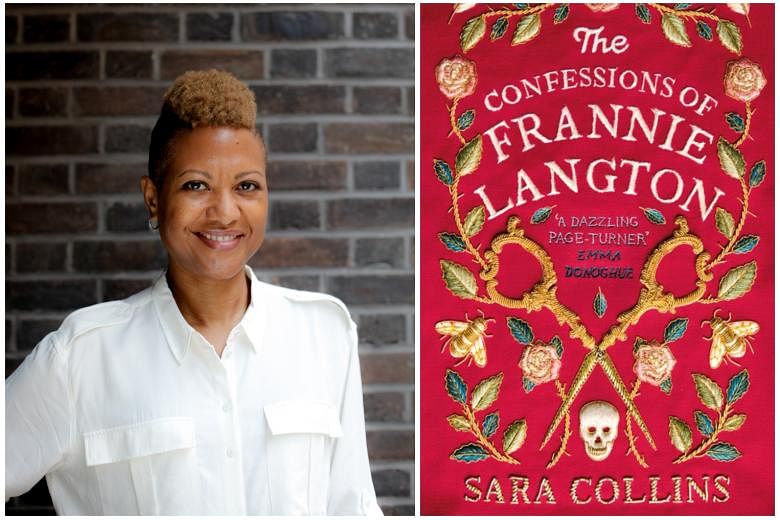Could a black woman be the heroine of a Gothic romance? Why not, asks writer Sara Collins, who is of Jamaican descent.
Born in Kingston, raised in the Cayman Islands and sent to a British boarding school when she was 11, Collins was obsessed with Charlotte and Emily Bronte's Jane Eyre and Wuthering Heights as a teenager.
She longed for a novel in which someone like her - a black Caribbean woman - had a place in the genre she loved. She could not find it, so she created it.
Her debut, The Confessions Of Frannie Langton, opens in a 19th-century London prison with its titular character on trial for the murders of her master and mistress.
Frances "Frannie" Langton was born a plantation slave in Jamaica, brought to England and presented as a gift to prominent natural philosopher George Benham.
Employed by him as a maidservant, she grows close to his wife, the beautiful, eccentric Marguerite, a relationship that will eventually spiral into jealousy, depravity and madness.
"The novel is pure invention," says Collins, 46, over the telephone from her home in London.
But Frannie's journey, she adds, had a historical basis in Francis Barber, a young Jamaican slave who was brought to London and became the manservant of Samuel Johnson, the celebrated 18th-century writer behind one of the most influential dictionaries in the English language.
"We hear about that relationship only from Johnson's point of view," says Collins.
She wondered what it would have been like to have been a young, intelligent person like Barber, so close to somebody acknowledged as one of the finest minds in the English language, yet denied recognition or access to the same kinds of resources.
She notes that there is a tendency to pigeonhole black historical writing as always being about slavery and "endless themes of suffering", which she wanted to avoid.
She tried as far as possible to read first-hand accounts by slaves or former slaves, though these were difficult to find. "Even then, those voices would have been mitigated by abolitionists, whose narrative was concerned with propaganda and educating people about the suffering of slaves," she says.
"It's perfectly understandable because they had a job to do, but it was incredibly restrictive. Unfortunately, we will never get a sense of who these slaves were as people."
The Confessions Of Frannie Langton, which has been optioned for a television adaptation, joins a tradition of contemporary Gothic novels such as Sarah Waters' Tipping The Velvet (1998) and Fingersmith (2002) and Sarah Perry's The Essex Serpent (2016), as well as Margaret Atwood's Alias Grace (1996), about Grace Marks, a maidservant accused of murdering her employer and his housekeeper in 1843 Canada.
It also has something of an antecedent in Wide Sargasso Sea, the 1966 novel in which Dominica-born writer Jean Rhys gives a voice to Jane Eyre's "madwoman in the attic", the Creole first wife of Jane's love interest Edward Rochester.
Though Rhys issued a post-colonial challenge to a British classic, Collins has long been troubled by the problematic nature of Wide Sargasso Sea. "It doesn't engage with the black characters as fully developed human beings."
The stereotypes it employed were ones she tried to undercut in her own book.
Before becoming a writer, Collins spent 17 years as a lawyer. She says writing her first novel, which she did in two sleepless years, was "the most all-consuming thing I've ever done" - including raising five children with her husband. They had been partners at the same law firm.
"If you're going to write a novel like this, it will suck you into its world," says Collins, who is now working on a novel about a cult on a remote Caribbean island in the 1980s.
"Recently, because I just finished recording the audiobook, which I read myself, I got dragged back into it, which has been both comforting and disorienting.
"I missed Frannie. I feel that in creating her, she became incredibly real to me and I was sad to let her go."


